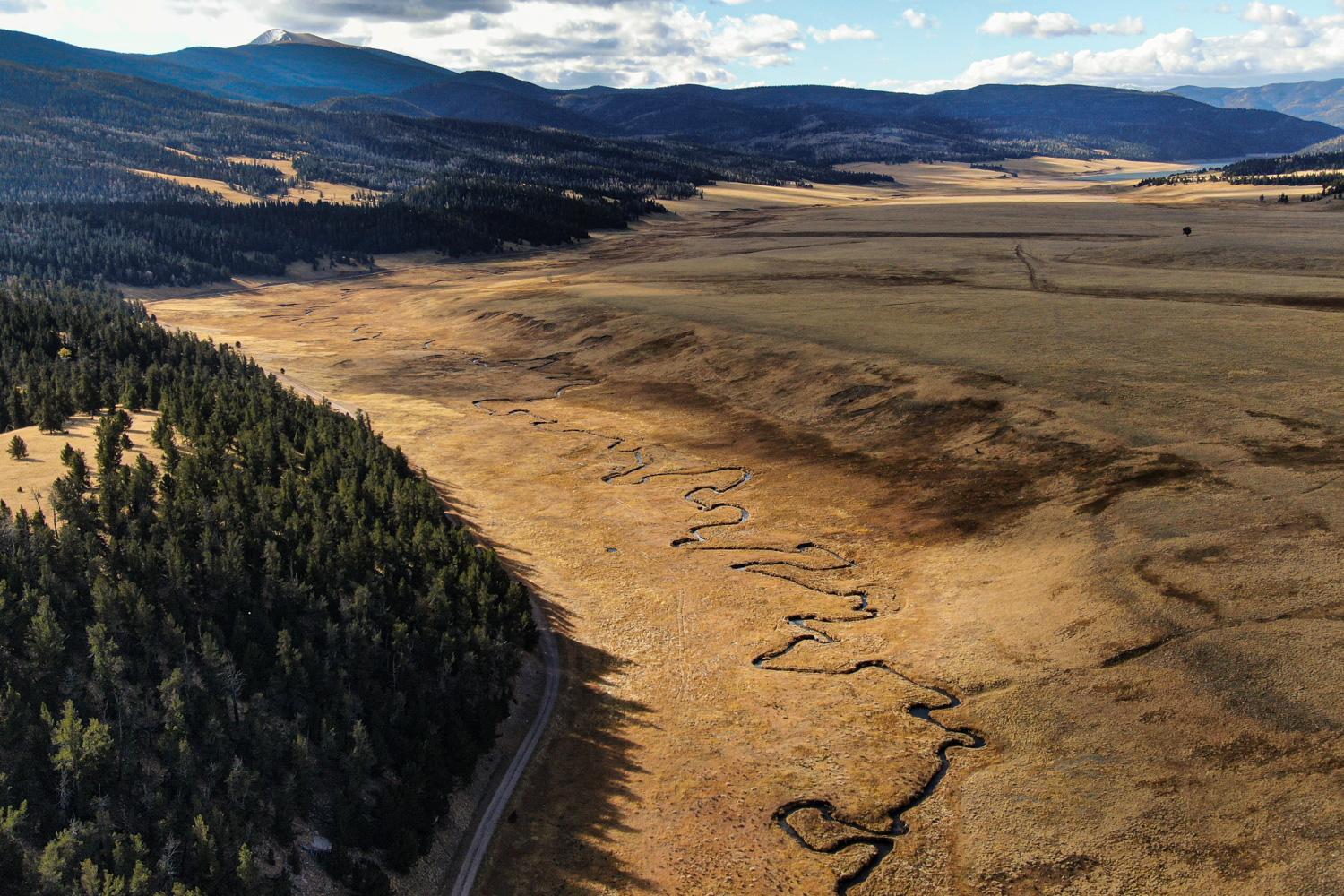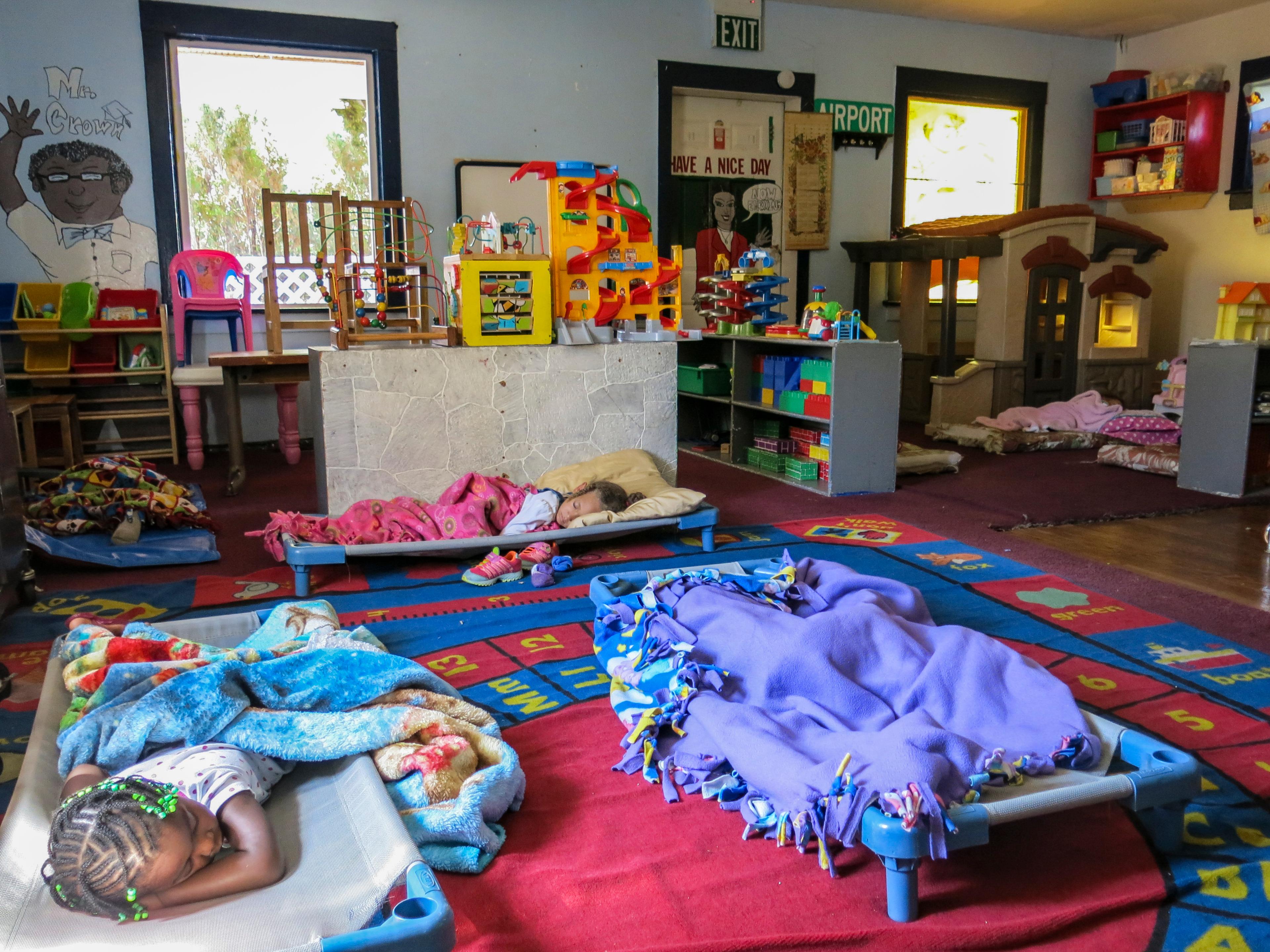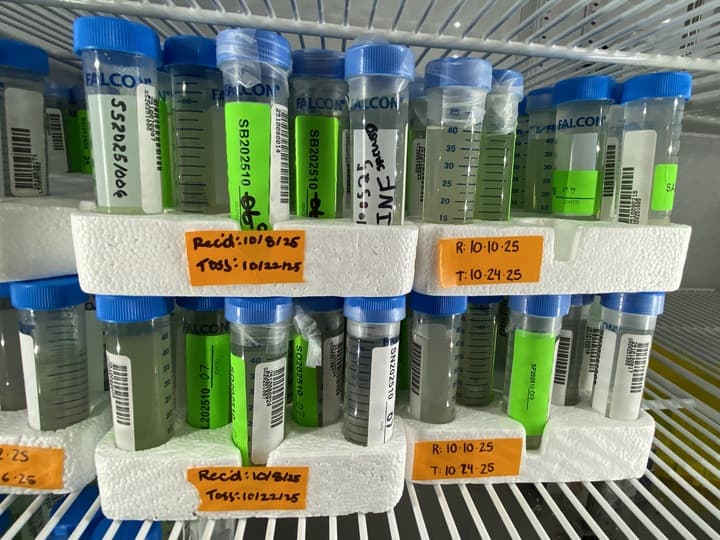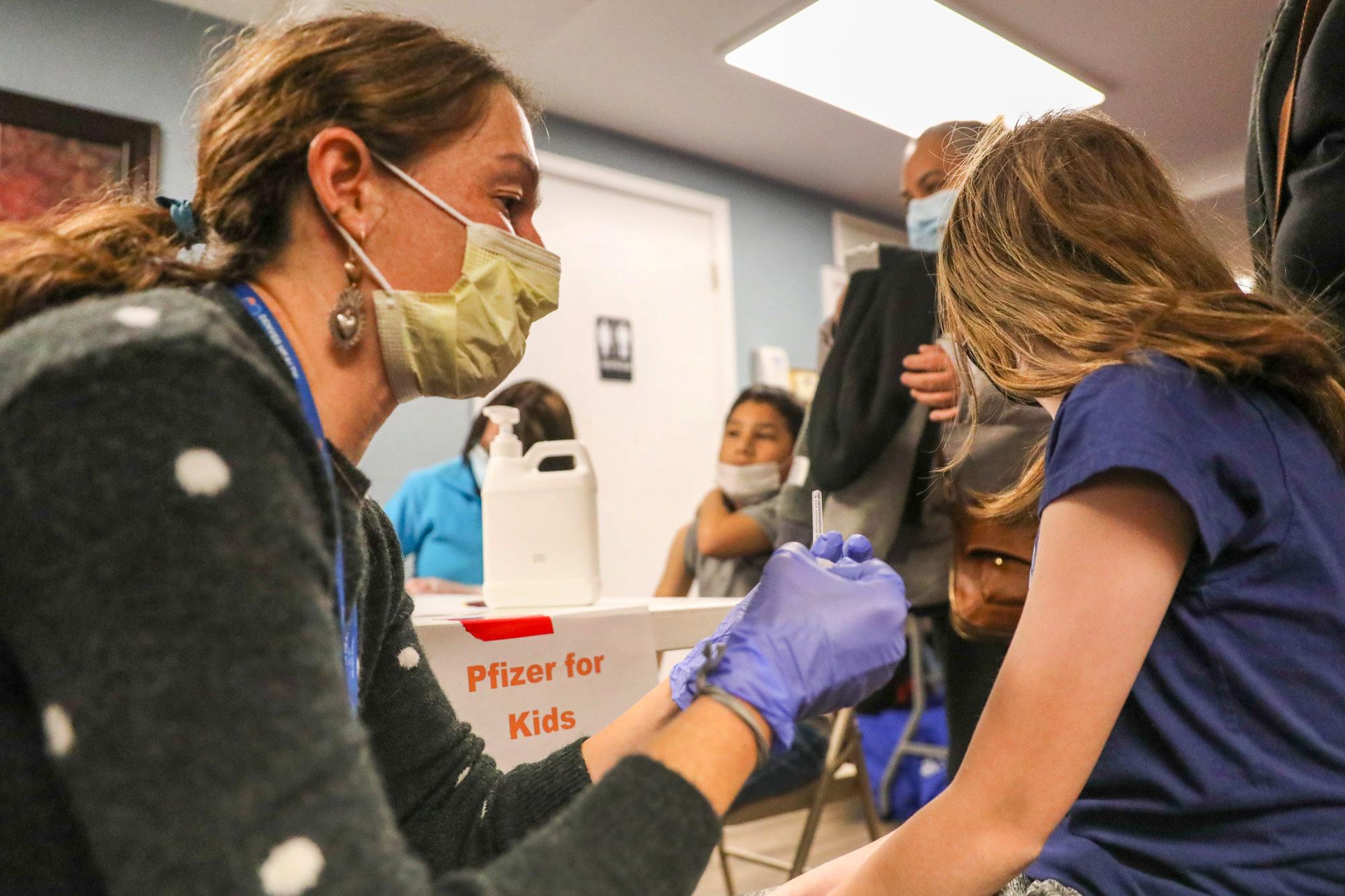
Fall vaccine season for 2025-2026 is already going down as one to remember. And it’s just getting started.
“Just in terms of at least the last few years, this is uncertainty that we haven't dealt with before,” said Dr. Shen Nagel, a pediatrician at Pediatrics West in Wheat Ridge. “The confusion and uncertainty for families and for providers, I think, is unprecedented. “
The questions arise when the landscape is evolving for vaccine guidance, distribution and availability, with a critical meeting happening this week of a key vaccine advisory panel.
The Centers for Disease Control and Prevention’s Advisory Committee on Immunization Practices, or ACIP, convenes Sep. 18-19 at a CDC office in Atlanta, Georgia.
Health Secretary Robert F. Kennedy, Jr., a longtime vaccine critic, has remade the agency he oversees, the U.S. Department of Health and Human Services. There’s been major restructuring and layoffs, the firing of the CDC director and a cut of $500 billion in funding for research into the technology behind COVID-19 vaccines.
And he’s reconstituted the ACIP, firing more than a dozen members and adding new ones, some with a history of vaccine skepticism.
Colorado has taken a number of steps to insulate its residents from recommendations from the new-era ACIP, a group which seems poised to veer away from a generally consistent scientific consensus that’s guided its decisions for years.
Earlier this year, Colorado’s General Assembly passed a bill, later signed into law by the governor, which directs the state’s board of health to take into consideration recommendations from a group of national medical organizations, not just the CDC panel.
Those organizations include the American Academy of Pediatrics, the American Academy of Family Physicians, the American College of Obstetricians and Gynecologists, and the American College of Physicians.
Dr. Ned Calonge, the state’s chief medical officer, earlier this month, in response to the growing federal uncertainty, issued a standing order to let pharmacists provide COVID-19 vaccines without individual prescriptions.
Many Coloradans have questions. We’re here to answer them.
And everyone will know a lot more after the federal vaccine panel has wrapped up its meeting at week’s end.
Will I be able to get a COVID-19 vaccine?
The new, RFK-molded ACIP could decide to limit who it recommends getting a coronavirus vaccine or it could leave the recommendations from last year in place.
Currently in Colorado, adults are able to get a COVID-19 shot at most pharmacies, thanks to the state’s standing order that lets pharmacists provide them without individual prescriptions.
The ACIP usually publishes recommendations guiding CDC policy, availability of federally funded vaccines, and insurance coverage.
But it has not yet issued updated guidance this year; that’s expected to happen at the end of this week.
Many pharmacies will only provide vaccinations to adults. On some appointment websites, like Safeway’s, for example, it asks if you are 12 years old or older.
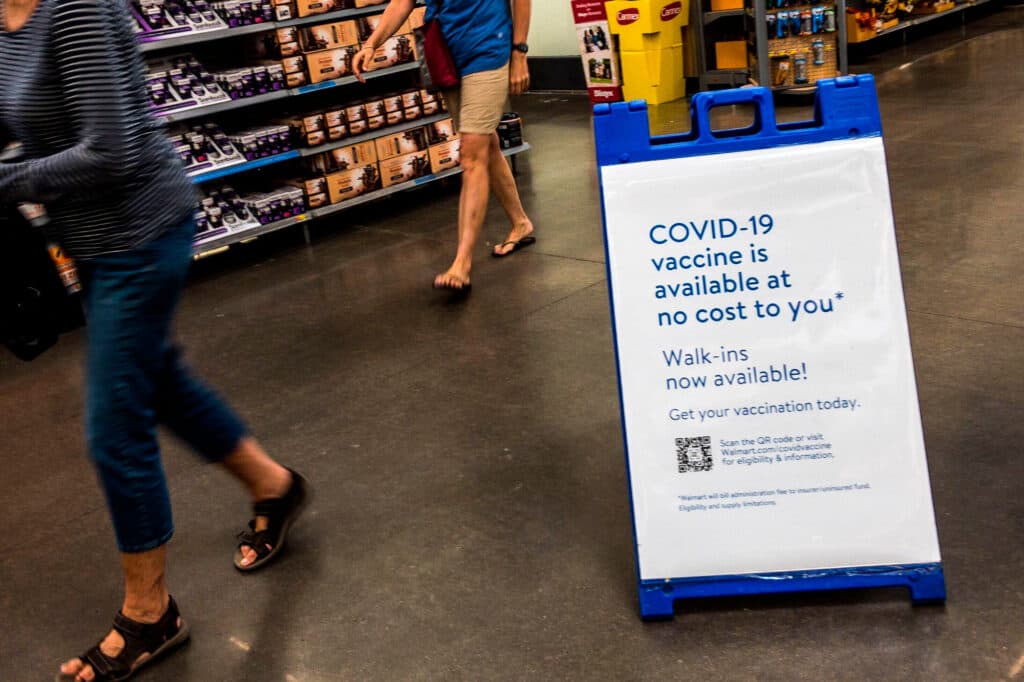
Supply in Colorado appears to be adequate so far.
“I think the bottom line is currently I think most people that wanna get a COVID vaccine can probably get a COVID vaccine one place or another,” said Emily Zadvorny, CEO of the Colorado Pharmacists Society.
She suggests checking with your local pharmacy or doctor’s office ahead of time to see if they have COVID-19 vaccines available.
And adults may want to get their shots as soon as they can this week, just in case the ACIP makes major changes to who can get a COVID-19 vaccine, which could potentially scramble the situation and limit who can get it.
“What we're finding with the national pharmacy chains is that we're continuing to kind of work through the details to make sure they have a level of comfort to provide the vaccine and it varies a little bit by the pharmacy,” said Calonge. “My suggestion to folks is that they check with the pharmacy before they go in.”
What about my children?
For children, it’s another story.
“I'm getting the most questions about the COVID-19 vaccine and whether their kids can get it and if it's available,” said Dr. David Higgins, a pediatrician at the University of Colorado Anschutz Medical Campus.
Many pediatric clinics get vaccines through the federal Vaccines for Children (VFC) program. That supply starts flowing once the ACIP weighs with recommendations on this year’s formulation of vaccines.
About half of all Colorado children, in the hundreds of thousands, get COVID-19 shots through the VFC program.
Because that hasn’t happened yet, delivery of those vaccines is on hold.
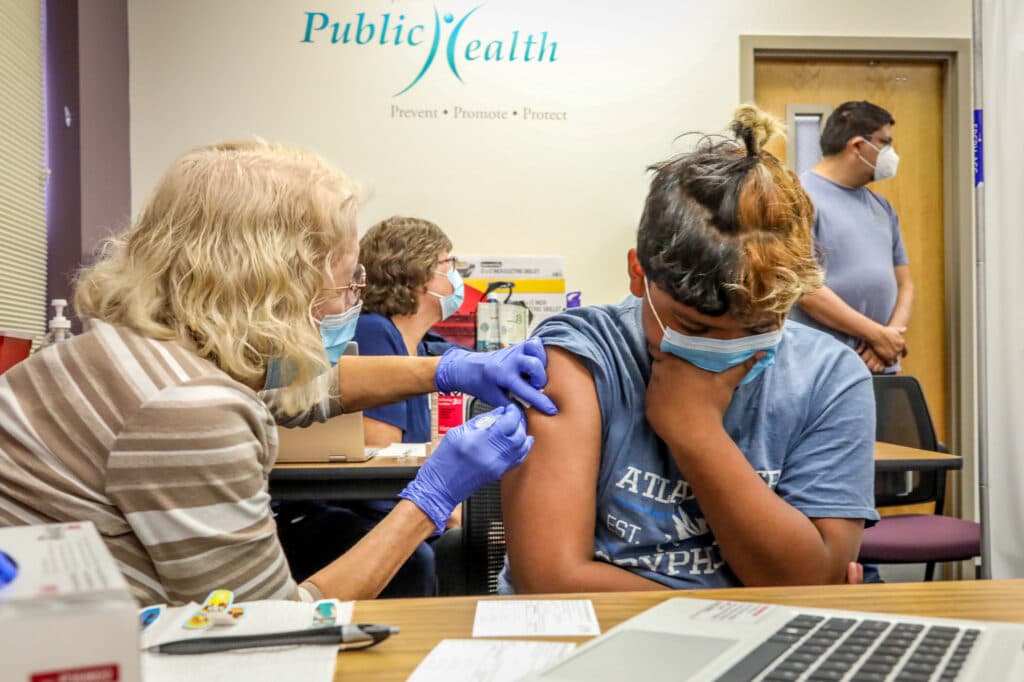
“I think that what we're seeing is still significant barriers to accessing COVID-19 vaccines for children and adolescents,” Higgins said.
Nagel’s practice typically holds vaccine clinics in the fall, distributing 4,000 to 5,000 COVID-19 vaccine doses. But this year, the clinic is still waiting for those doses to arrive. “We haven't really gotten many COVID vaccines in hand at all at this point. And none of the VFC stock yet,” Nagel said.
Higgins advice? Parents should reach out first to their pediatrician, see if their pediatric office has a coronavirus vaccine available, and then try pharmacies.
But he cautions the situation is still evolving and will depend on what the new ACIP does.
Will children be able to get their routine childhood vaccines?
This is another key question ahead of this week’s meeting.
In recent weeks, news coverage has delved into the possibility that the new vaccine panel could make changes recommendations to some routine childhood vaccines. The ones drawing the most attention are the hepatitis B vaccine and the MMRV vaccine for measles, mumps and rubella, plus varicella or chickenpox.
NPR reported Tuesday the ACIP is expected to vote to recommend delaying, until age 4, the hepatitis B vaccine, which is now given to newborns. Its reporting was based on two former senior officials at the Centers for Disease Control and Prevention.
The CDC, for more than three decades, has advised infants to get the first of three shots of that vaccine when they are born.
Hepatitis B is potentially fatal, and since 1990, rates for the disease have dropped sharply among people aged 19 and younger.
In June, ACIP’s chairman, Martin Kulldorff, a new Kennedy pick who opposed some COVID-19 pandemic measures, questioned the need to vaccinate every newborn. But he cited just two of many ways the virus can spread, NPR reported.
"Unless the mother is hepatitis B positive, an argument could be made to delay the vaccine for this infection, which is primarily spread by sexual activity and intravenous drug use," Kulldorff said.
But Higgins said screening mothers for hepatitis B is far from perfect and results can be misinterpreted or not communicated properly.
Because the risk of an adverse outcome for the child is so high, he said, the common advice all these years has been to give the vaccine to newborns.
“The birth dose of Hepatitis B vaccine, you can think of it as a safety net. It's a safety net because there's all those gaps in screening that we know exist, and we don't want a single child to fall through those gaps.”
Where will Colorado get its recommendations?
He thinks Colorado health leaders, equipped with the new law allowing them to rely on other medical groups, will have the option of listening to other medical groups if ACIP sharply changes course.
“This is another case where I think you're gonna see Colorado step up and say, ‘whoa, this is not what is best for Colorado children,’” he said.
Calonge said the state health department will be watching the panel’s recommendations closely.
“The ability to prevent hepatitis B infection and the associated chronic Hep B and liver failure and liver cancer is a remarkable public health intervention,” he said. “So it's our clear hope that the ACIP will evaluate the evidence and not vote against this ongoing birth dose.”
Another vaccine the ACIP is set to discuss is the MMRV vaccine, which is also recommended for children. MMRV is a combo of the measles and chickenpox (varicella) vaccines. The CDC currently recommends the first doses of the two vaccines be given separately, while MMRV is the preferred option for the second dose.
The combination MMR/chickenpox vaccine was first licensed a couple of decades ago.
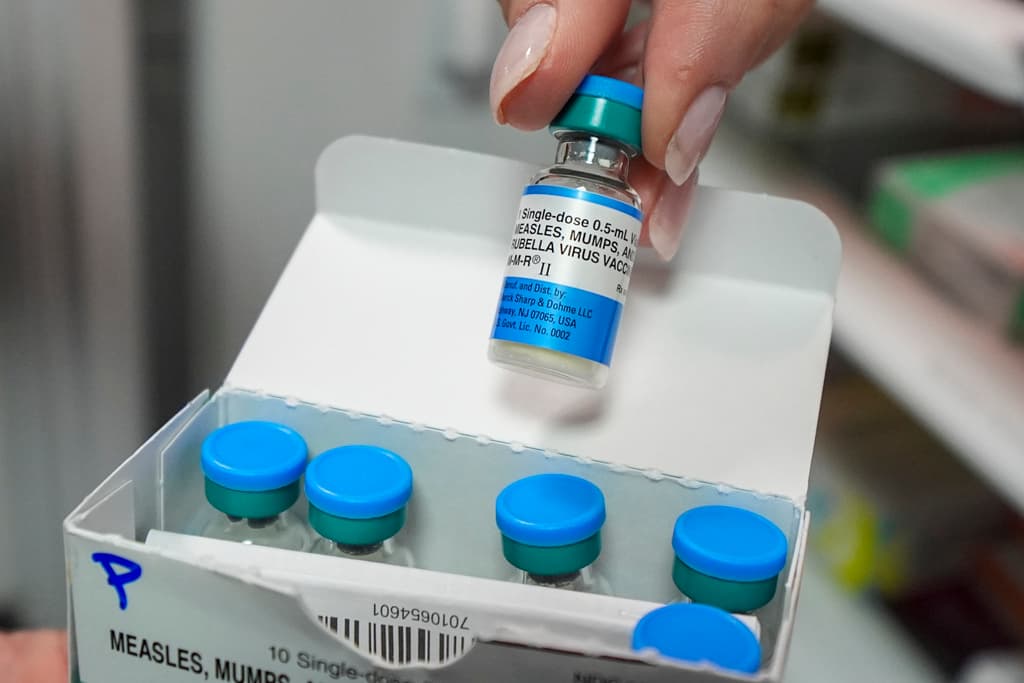
But it showed a small increased risk of febrile seizures, which last for a few moments. In 2008, recommendations were altered to give a shot to babies 12 months to 47 months old, according to current CDC guidance, with no risk being found for older children.
ACIP could decide to raise the age limit. “If they were to say no combined MMRV vaccine for any children, I would be, I am very concerned about supply of measles vaccine and chickenpox,” Higgins said. “Because immediately, clinics would have to completely change what they're doing. I don't know what would happen to the current stocks.”
Higgins worries, especially in a year when the U.S. and Colorado are seeing a major surge in measles cases, that could have a dramatic impact.
“If you are going to restrict access to vaccines from measles and chickenpox, that's a recipe for disaster,” he said.
If the new federal vaccine panel upends currently accepted vaccine recommendations, how will Colorado respond?
Right now, that’s a question mark.
Calonge said he hesitates to predict what ACIP will do. But he said Colorado is ready to respond should the ACIP’s recommendations shift from what other trusted medical groups advise.
He said so far, other doctors in Colorado have been supportive of the state’s approach.
“I have not heard any pushback. I have gotten a fair amount of positive support from clinicians that I know personally and clinicians around the state,” Calonge said. “That's not to say that there aren't those who disagree with this approach.”
He said ultimately it’s up to a patient or a family to do what they think is best, ideally talking it over with a trusted medical provider.
“We're not mandating vaccination for any child or any adult. We are simply looking for a way to make it available for those parents who choose it for their children and those adults who choose it for themselves,” he said.
Nagel, the pediatrician in Wheat Ridge, said he’ll be following the news closely, including to see if insurance will cover vaccinations in Colorado should its recommendations diverge from federal recommendations.
“I'm just kind of telling patients and ourselves, ‘try and to hang in there through this weather, this storm,’” he said.

